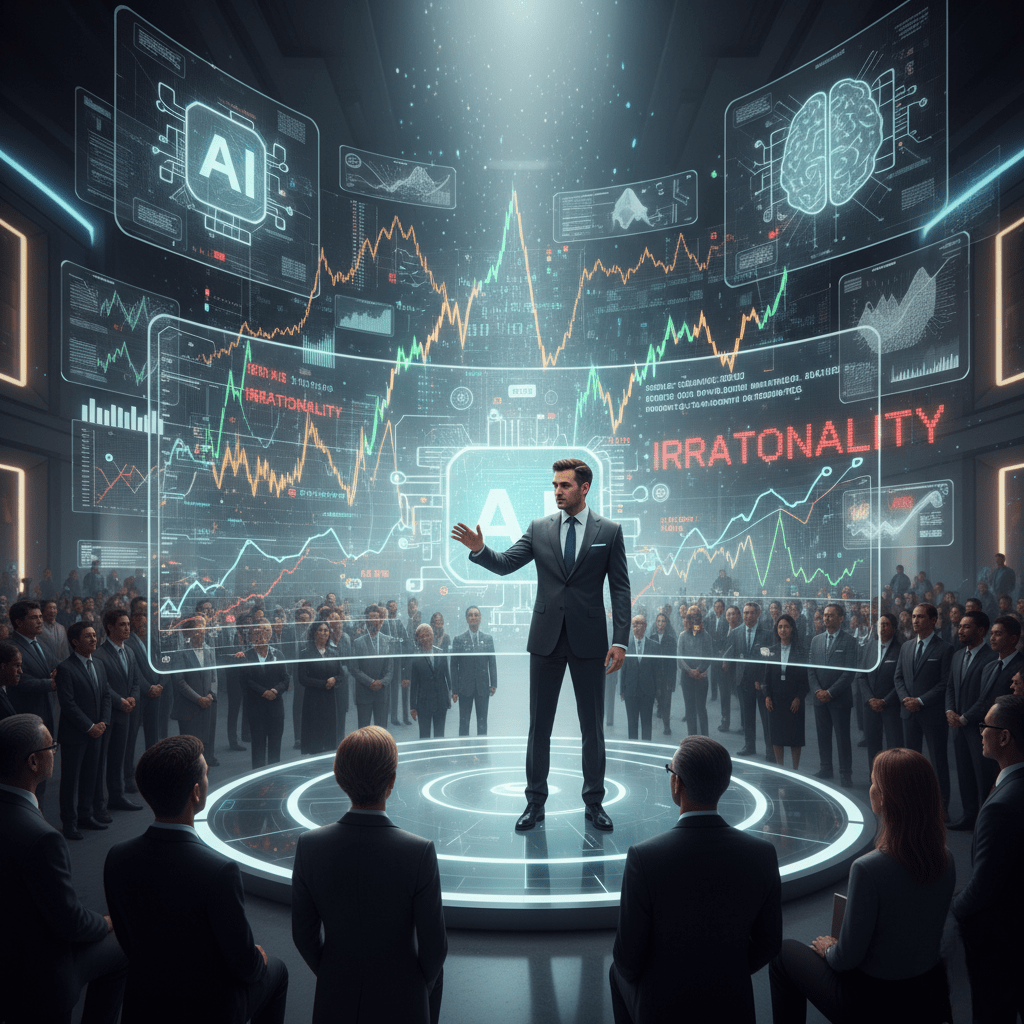The global tech industry is witnessing massive growth, but Google CEO Sundar Pichai has warned that the AI investment bubble shows signs of “irrationality.” In an exclusive interview with BBC News, he acknowledged that while AI is transforming the world at an extraordinary pace, the financial hype around it could carry major risks for every company—including Google itself.
For more updates on technology trends in Pakistan, visit our Tech News section.
AI Investments Rising Faster Than Ever
Over the past year, AI valuations have skyrocketed. Tech giants and startups alike are pouring billions into artificial intelligence. Alphabet, Google’s parent company, has seen its valuation double to $3.5 trillion in just seven months. Its new AI superchips are now competing directly with Nvidia’s world-leading technology.
For deeper economic insights, explore our Business & Economy category.
Despite this optimism, analysts are raising concerns about a potential bubble similar to the dot-com boom. In the late 1990s, internet companies experienced extreme valuation surges before the market eventually crashed.
Sundar Pichai agreed that today’s AI space shares both rational innovation and elements of irrational excitement.
He said the industry historically tends to “overshoot” during major technological transitions, and AI may follow a similar trajectory.
Could the AI Investment Bubble Burst?
When asked if Google could avoid the effects of a bursting AI investment bubble, Pichai responded clearly:
“No company is going to be immune, including us.”
Although Google is better positioned because it owns its entire “full stack”—chips, models, data, and research—the CEO warned that all companies will face consequences if the bubble pops.
Jamie Dimon, CEO of JP Morgan, has issued similar warnings, noting that while AI will pay off long-term, not all investment money will survive.
To learn more about global tech market shifts, see our World News section.
Global and UK Investment Plans Continue
Despite the risks, Alphabet is expanding heavily, especially in the UK. It recently committed £5 billion to AI infrastructure and research. Pichai confirmed that Google will eventually begin training AI models in the UK, strengthening its position as a top-three global AI superpower alongside the US and China.
DeepMind, Google’s London-based AI unit, will also scale its “state-of-the-art” research capabilities.
For updates on international innovation, visit International News.
Energy Challenges in the AI Boom
Pichai also highlighted a growing problem: AI’s massive energy consumption.
According to the International Energy Agency, AI now uses 1.5% of global electricity, a number expected to rise sharply.
He warned that countries—including the UK—must invest in new energy sources to support future AI growth. Failing to do so could slow down economic progress.
While Alphabet aims for net-zero emissions by 2030, Pichai admitted that rapid AI expansion is slowing climate targets.
Read more on climate and energy challenges in our Environment & Climate category.
AI’s Impact on Jobs and Society
Calling AI “the most profound technology” humanity has ever created, Pichai said it will reshape every industry. Some jobs will transform or disappear, but many new roles will emerge.
He emphasized that workers who adapt and learn AI tools will benefit the most—whether they are teachers, doctors, or engineers.
Explore related stories in Future of Work & Technology.
Conclusion: What Pakistan Should Learn
The warnings about an AI investment bubble are important for countries like Pakistan that are rapidly adopting digital technology. As AI reshapes industries, businesses and policymakers must invest wisely, prepare workers for change, and monitor global market trends.
Visit our Technology section for more in-depth coverage on AI developments.
Call to Action
Stay updated with the latest tech trends, AI news, and economic insights.
Visit PukaarPakistan for more expert analysis and research-backed reporting.














